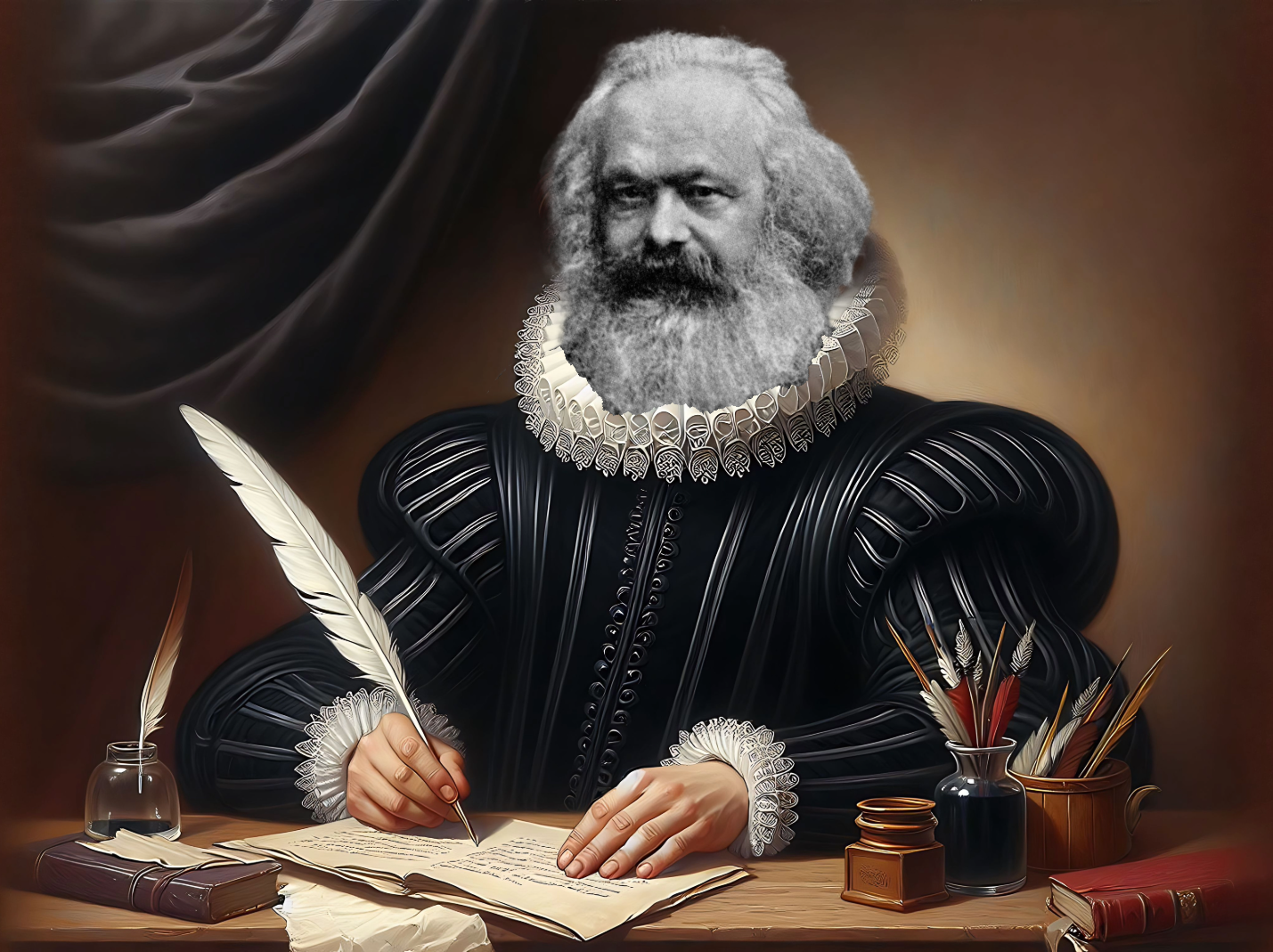
I scanned the first message I received in my Columbia University MA English group chat. Bookmarking my copy of Ayn Rand’s We the Living, a novel about the ills of post-Revolutionary Russia, I recoiled. Reviewing the text, sent by a researcher of “imperial conspiracy” in a “postcolonial context,” I felt my vision blurring. This couldn’t be real.
Comrades … There will be a Union training about the upcoming strike authorization vote in March. English is amongst the biggest (and most left-leaning and pro-labor) departments, so we need you trained up and up to speed for the strike we might have end of Spring!
The researcher had inadvertently verbalized the plague that had set over English departments across the nation: English is amongst the most left-leaning and pro-labor departments.
From the moment I stepped foot on campus to study English Literature at Columbia University, I felt that something was amiss. My freshman year of college, for instance, the university had removed Ovid’s Metamorphoses from an introductory freshman literature course called “Masterpieces of Western Literature” because several students had complained about its “graphic”—the work is far from graphic—depictions of rape.
The eighteen-year-old literature nerd in me couldn’t help but balk: the Metamorphoses, the largest Ancient collection of Greco-Roman myths in a single text, is arguably one of the most important works to the foundation of the Western canon. Yet, after speaking with several professors about this decision, I grew disheartened. “Just because the Metamorphoses is on the syllabus,” one such professor remarked, “does not mean that it is a valuable piece of literature.” The work that my favorite poet, T.S. Eliot, alludes to several times throughout his monumental 20th-century poem, “The Waste Land,” was not important? I did not know what these professors were on—crack?—but I intended to find out.
Over the next four years, I grew increasingly disheartened by the volume of literary theory assigned throughout my English classes. I had arrived at Columbia intending to become a humanistic scholar, which is what was advertised to me during my application process. Yet, I found the vast majority of critical theory readings not only biased but also far off the mark: I was asked to understand Jane Austen’s early 19th-century novel Mansfield Park under the 20th-century postcolonial lens of the notorious anti-Semite Edward Said, and I was fed Karl Marx in nine out of the sixteen literature courses that I took during my time as an undergraduate student.
Each winter break, I’d update my parents, who are Soviet expats who had come to America on refugee status, on every new Marxist text we had been assigned. In response, they’d nearly fly off their chairs, raising their voices in fulmination: “We did not leave that oppressive regime founded on Marxist-Leninst values just so that our daughter would be reading Marx for breakfast!”
As I prepared myself for graduate English applications, vowing to restore literary study back to its proper foundations—to explore the humanistic tradition—I wondered why English literature had become so forcefully seized by far-left ideologues. While one explanation might be that English professors, who work long hours and feel under-compensated for the value that they bring, are turning to Marxism to voice their grievances, the history of Marxism in the academy hits even deeper.
A New York Times piece from the late 1980s chronicles the “mainstreaming of Marxism” in the academy and argues that while Marxism had fallen out of vogue in terms of practical application—likely due to the imminent failure of the Soviet Union at the time—it has been co-opted in “the abstract world of literary criticism.” Where Marxists did not find a voice politically, they found it in the study of literature—a field so subjective that no one could call out these extremist takes as erroneous. It is no wonder that an increasing number of faculty members now identify as far-left and that these lopsided ideologies have found a home in English departments nationwide.
As a daughter of Soviet immigrants who personally suffered under Marxism, I understand the pitfalls of this noxious ideology and have been disheartened to see it prevail in the study of English literature. Yet while Marxist ideologues have indeed annexed literature, it doesn’t have to continue this way.
Throughout my years as a reader and literary scholar, I have witnessed countless works imprint themselves on my psyche as I have grown into a richer human being. Jane Eyre taught me the value of trust and persistence in the name of love. Notes from Underground provided me with a window into the human condition. East of Eden presented me with the nature of good and evil. In reminding ourselves that literature is a vehicle through which we can understand ourselves, we can focus on what we have in common as members of the human species rather than augment our differences.
Across American college campuses, English literature students are being taught that literary study must necessarily rest on the far-left ideologies of Karl Marx, Michel Foucault, Judith Butler, and others. As a result, literary fields such as publishing, academia, and journalism are increasingly becoming dominated by ideological extremists who are bringing the focus of literary study away from the humanistic tradition and towards their own political agendas.
It is unsurprising that in studying English, a field that claims to understand human beings through the written word, I was assigned more Karl Marx than Charles Dickens. If we continue to politicize literature to these extremes, it will die away, and then we will be left–dangerously–only with Marxism for its own sake.
To restore the true purpose of literature, we must promote the idea that literature is a work of art through which we can understand what makes us uniquely human–only thus can we begin to bridge our differences.
Follow Liza Libes on X
Image designed by Jared Gould; Background by Manuel Milan — Adobe Stock —Asset ID#: 780760933; Karl Marx by Georgios Kollidas — Adobe Stock — Asset ID#: 44798993 (cropped)

The claim that few humanities faculty are Marxists is true. Few are dedicated, out, self-declared followers of Marxism. But I believe that the overwhelming majority of humanities faculty are practicing an ideological version of Marxist theory unawares. The emphasis has been shifted from economic class victim to race and identity victim but the activism is precisely the same.
It seems that you are tagging people as Marxist because they are activists. Race and identity are not Marxist concepts. And claiming that professors who have probably studied Marx are unaware that they are Marxists is far-fetched.
I’m going with another definition of literature, the one issued by Cervantes. Literature is a field that allows us to speculate at ease or, which is the same thing, without fear of violence. The Marxist definition of literature as nothing but bourgeois ideology assumes a materialist dialectic. Toss the materialist part and you have literature again, if only because at that point no dialectic leads to anything but another dialectic. Also, Ms. Libes’s point that this got mainstreamed in the 1980s, at least in the US, is spot on.
I can’t say much about English departments from personal experience. But a survey, linked below — admittedly a bit dated from 2015 — claims that self-described Marxists are only 6% of faculty in Humanities. The greatest share of Marxists, to my surprise, is in social sciences. It would be worth exploring this further with updated studies.
https://www.econlib.org/archives/2015/03/the_prevalence_1.html
The key adjective is “self described” — there are a lot of Marxists in academia who consider themselves to be Progressives, or Socialists, or whatever. They are Marxists in deed regardless of what they call themselves in name.
Yes, let us just believe that a “self-describing” survey proves that only a small, rabid cabal of the profestocracy are avowed Marxists/Stalinists.
Meanwhile, in the real world where things actually happen:
https://www.campusreform.org/article/umass-will-teach-rich-tradition-transnational-black-feminist-queer-marxist-theorizing/26138
Besides you may just as well ask how many members of the campus left “self-described” as members of Hamas. Probably very few, but that in no way negates the fact that most left-wing faculty gladly goosestep right along with the terrorists.
So you managed to link to one far-out course at far-out UMass.
Do I think that many leftwing faculty are “members of Hamas”? No, they are not members! They would be too busy hiding in tunnels to teach their classes.
A fair number are sympathizers of Hamas, to be sure. But these are still, I think, a minority of a minority of self-described radicals, even among the social science and humanities faculty.
I’ve actually come across surprisingly few faculty who mention or think about Marx much at all. Even among those who are self-described “radicals.”
I’ve never come across a self-described “Stalinist.”